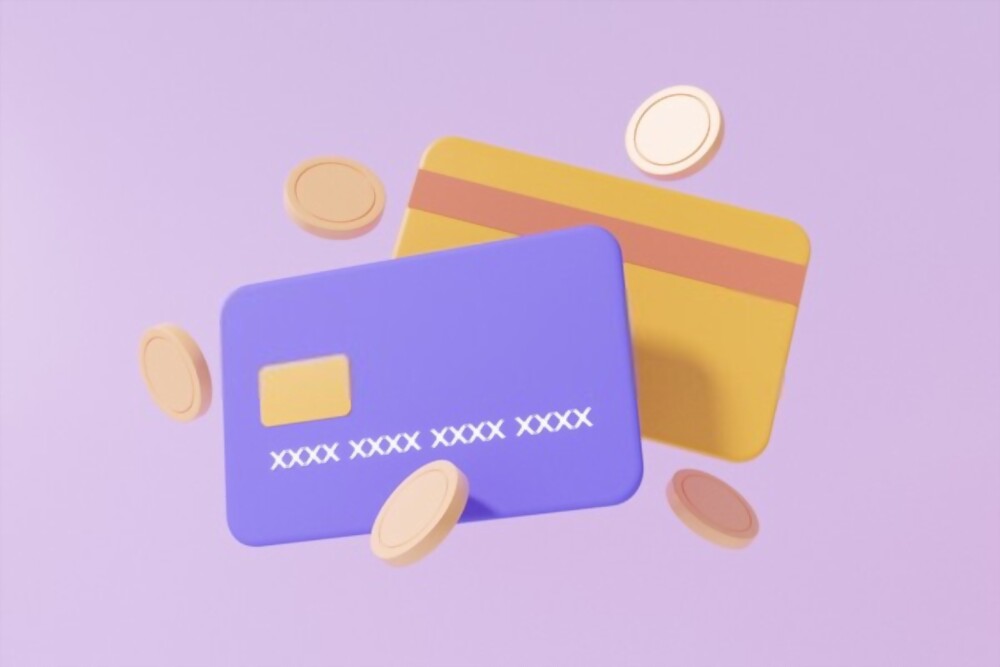With the advancement of internet technologies, Ugandans can now make payments for goods and services using financial instruments such as debit cards and credit cards. This means they no longer need to physically travel or use third parties to purchase items from abroad. Instead, they can simply use their debit or credit cards to make purchases and receive their orders from the comfort of their homes.
Despite the convenience of shopping with debit or credit cards, many Ugandans do not fully understand the difference between the two types of cards. Some Ugandans even refer to them interchangeably as Visa or ATM cards.
In this article, we will clear up this confusion by providing a comprehensive explanation of the key differences between debit cards and credit cards in Uganda.
However, before delving into these differences, let’s first understand the basic concepts of credit and debit.
Also read: How to Shop Online in Uganda without a Credit Card
Understanding the terms’ Credit’ and ‘Debit.’
In the world of financial transactions, the terms “credit” and “debit” have distinct meanings. Credit refers to the ability for a customer to obtain goods and services based on trust and pay for them later, often with an interest charge.
On the other hand, debit refers to a record of money or expenses taken from an individual’s bank account. In simpler terms, debit is the process of deducting money from an account. For example, when you withdraw UGX 100,000 from your bank account, the bank will debit the funds from your account, which means that the money has been subtracted from your available balance.
Also read;Top 16 Online Shopping Sites in Uganda 2025
The difference between a debit card and a credit card
Both debit and credit cards serve the same function, i.e., they are used to make purchases in the absence of cash. They even look similar physically. The main difference, however, lies in the way both these cards function. When you make a purchase, a debit card debits or deducts the money from your bank account, while a credit card doesn’t instantly remove money from your bank.
Debit Card
A debit card is a payment card that allows you to make purchases using money already in your bank account. It is connected or linked to your bank account, and when you use it to make a purchase, the money is automatically deducted from your bank account. It is like using cash, but instead of carrying cash around to buy stuff, you use a debit card to make the payment. Anyone can get a debit card for as long as they have a bank account.
Also, multiple companies in Uganda offer virtual debit cards, such as Momo Card by MTN Uganda, Airtel Money Card by Airtel Uganda, and Chipper Card by Chipper Cash. These virtual debit cards function the same way as traditional, physical debit cards, the only difference being that they are digital and not tangible.
Pros of using a debit card:
- It allows you to spend money you already have. No risk of overspending and going into debt.
- It can be used to withdraw cash from ATMs
- It can be used to make purchases at merchants that accept debit cards.
- It can be used for online transactions and recurring payments.
- It can be used internationally.
- Some debit cards offer cashback rewards or other incentives.
- Some debit cards, such as those by MasterCard, offer protection features such as zero liability for unauthorized transactions, fraud monitoring, and SMS alert services.
Cons of using a debit card:
- Debit cards have lower fraud protections than credit cards.
- Your card and bank account may be frozen or blocked if fraudulent transactions occur.
- If your debit card is lost or stolen, a thief can drain your account by withdrawing your money or using it for unauthorized purchases.
- Debit cards do not help you to build a credit history.
- Some online merchants/stores do not accept debit cards or might charge a fee for using them.
- Some debit cards might not work with some international merchants.
- Some debit cards might not have the same protection if used in case of disputes.
Credit card
A credit card is a payment card that allows you to make purchases on credit, meaning you can buy things now and pay for them later with an interest charge. It is like borrowing money from a bank, with the agreement that you will pay it back with interest. Think of it like borrowing money from a friend with the promise that you will pay it back with some extra money.
Credit cards are very rare in Uganda and are only issued to a specific class of people or people with the ability to pay back the money used on credit. Usually, credit cards are issued to prominent business people, government officials, and civil servants.
Pros of using a credit card:
- They allow you to make purchases on credit and pay for them later, providing a convenient way to pay for goods and services.
- They can help you build a credit history if used responsibly.
- They offer more protection against fraud and unauthorized charges than debit cards.
- Some credit cards offer rewards such as cashback and other incentives.
- Some credit cards offer additional features such as rental car insurance, purchase protection, and extended warranty.
Cons of using a credit card:
- High-interest rates on the unpaid balance
- They can be easy to overspend with, resulting in high-interest debt that can be difficult to pay off.
- They can negatively impact your credit score if not used responsibly.
- You need a good credit history or stable income to qualify for a credit card.
- Some merchants or online stores charge a fee for using credit cards.
- Some credit cards might not work with some international merchants.
- Some credit cards come with an annual fee.
Tip
Please note that the terms “Visa card” and “Mastercard” are not synonymous with “debit card” or “credit card.” Visa and MasterCard are simply companies that produce debit and credit cards. While debit and credit cards can be used to withdraw cash from ATMs, they should not be referred to as “ATM cards” as it can be confusing as there are also cards, such as ATM-only cards, which can only be used to withdraw cash from ATMs.
Key differences between debit card and credit
Below is a table showing the key differences between a debit card and a credit card
| Debit card | Credit Card |
| Uses money in your bank account | Serves as a loan |
| No limit on how much you can spend | There’s a credit limit |
| No repayment | Repayment required |
| Easy to get | Hard to get, on issued to a certain class of people based on creditworthiness. |
| No interest | High interest charges |
| Prone to fraud | Protection against fraud |
| Doesn’t allow cash advance | Can withdraw a cash advance not exceeding your credit limit |
How to use a debit or credit card to shop online in Uganda
Shopping online in Uganda with a debit or credit card is simple and easy. Here are the steps you can follow:
1. Find an online retailer that accepts debit or credit card payments. Many online retailers in Uganda, such as Jumia, Masikini, Dantty, Dombelo, etc., accept debit or credit card payments.
2. Browse the website, select the items you want to purchase and add them to your cart.
3. Once you’ve added the products to the cart and are ready to checkout, enter your shipping/delivery information and choose “debit or credit card” as your payment method.
4. Enter your card details, including the card number, expiration date, and CVV code.
5. Review and confirm your order details.
6. Click the “submit” or “pay” button to complete your purchase.
7. You will receive an email confirmation of your order and the payment.
Note that when using a debit card, the funds will be automatically deducted from your bank account, while when using a credit card, the funds will be borrowed, and you’ll need to pay them back with interest. Also, it is a good practice always to ensure that the website or app you buy from is safe and secure before entering your card details.
Also read; How to Shop Online in Uganda: Step-by-Step Guide
Frequently asked questions about debit and credit cards in Uganda.
Below are the most commonly asked questions about credit cards in Uganda:
What is the difference between a debit card and a credit card?
A debit card is linked to your bank account and allows you to spend the money that you already have in that account. A credit card allows you to make purchases on credit and pay for them later, with an interest rate.
How do I get a debit card in Uganda?
To get a debit card in Uganda, you must open a bank account with a bank that offers debit cards. Once your account is open, you can request a debit card from the bank. Most Banks in Uganda offer debit cards.
Can I use a debit card to make online purchases?
Yes, you can use a debit card to make online purchases. When prompted, you will need to enter the card details, and the funds will be deducted from your bank account.
How do I report a lost or stolen debit card?
You should contact your bank immediately to report a lost or stolen debit card. The bank will cancel the card and issue a new one.
Can I use a credit card to withdraw cash?
Yes, you can use a credit card to withdraw cash, but it will be treated as a cash advance with a higher interest rate.
Which banks have credit cards in Uganda?
Several banks in Uganda offer credit cards to their customers. Some major banks that provide credit cards include NCBA bank, Bank of Africa, Diamond Trust Bank, ABSA, and others.
Who qualifies to get a credit card in Uganda?
In Uganda, credit cards are only issued to a specific group of individuals, such as prominent businesspeople, civil servants, and government officials.
What is the credit card limit in Uganda?
The credit card limit for individuals in Uganda can vary depending on the issuing bank. However, most banks have a credit limit of around $1000 for the credit cards they offer.
Also read; How to keep your credit card safe while shopping online in Uganda
Conclusion
In conclusion, understanding the difference between debit cards and credit cards is crucial for managing your finances effectively. Debit cards are linked to your bank account and allow you to spend the money you already have, while credit cards allow you to make purchases on credit and pay for them later. Both have benefits and drawbacks, and it’s advisable to consider your financial situation and spending habits before choosing which is right. It’s also important to note that to get a credit card in Uganda, you will typically have to be a prominent businessman, government official, or civil servant. In contrast, anyone with a bank account can get a debit card.




